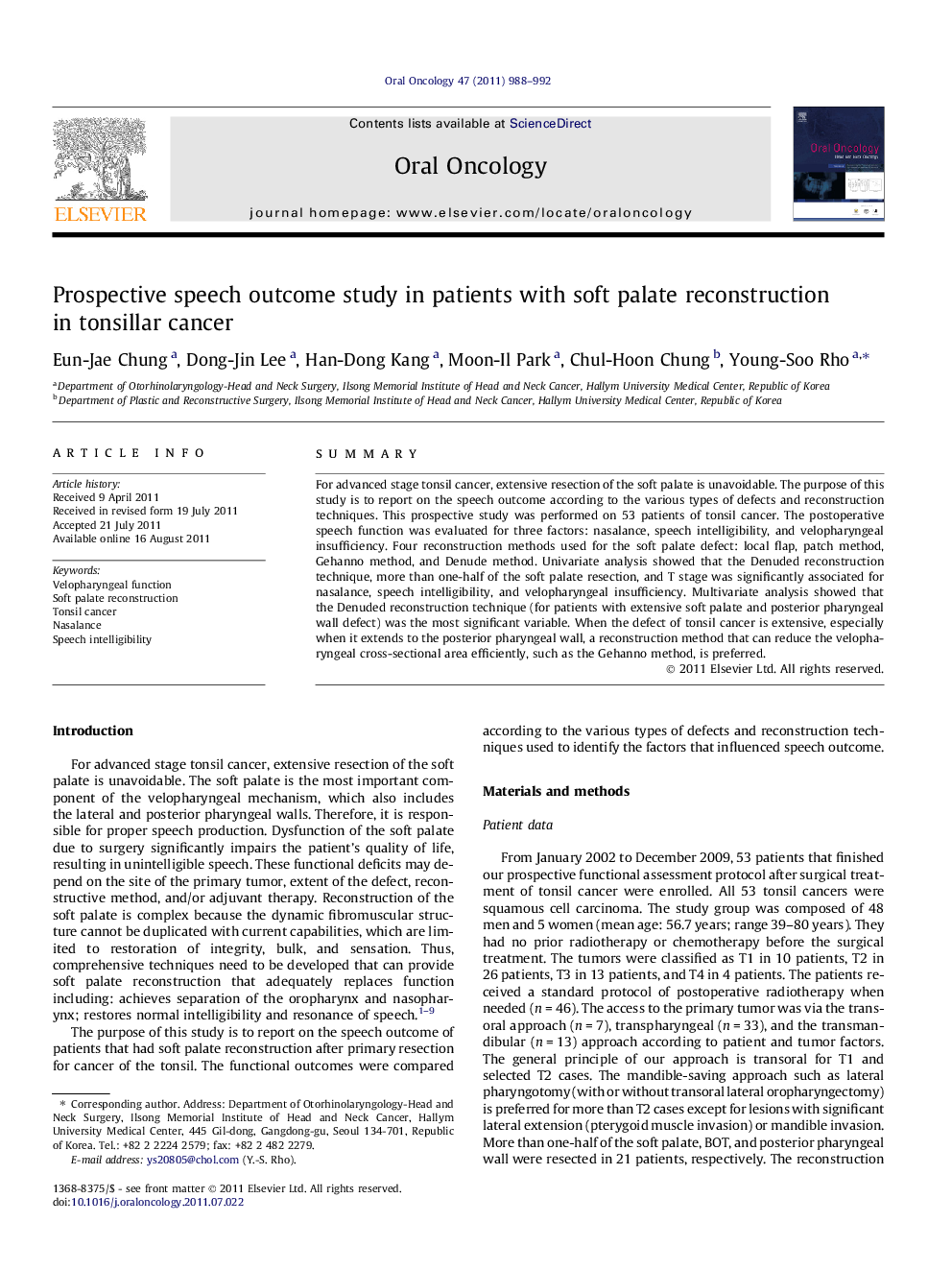| Article ID | Journal | Published Year | Pages | File Type |
|---|---|---|---|---|
| 3164502 | Oral Oncology | 2011 | 5 Pages |
SummaryFor advanced stage tonsil cancer, extensive resection of the soft palate is unavoidable. The purpose of this study is to report on the speech outcome according to the various types of defects and reconstruction techniques. This prospective study was performed on 53 patients of tonsil cancer. The postoperative speech function was evaluated for three factors: nasalance, speech intelligibility, and velopharyngeal insufficiency. Four reconstruction methods used for the soft palate defect: local flap, patch method, Gehanno method, and Denude method. Univariate analysis showed that the Denuded reconstruction technique, more than one-half of the soft palate resection, and T stage was significantly associated for nasalance, speech intelligibility, and velopharyngeal insufficiency. Multivariate analysis showed that the Denuded reconstruction technique (for patients with extensive soft palate and posterior pharyngeal wall defect) was the most significant variable. When the defect of tonsil cancer is extensive, especially when it extends to the posterior pharyngeal wall, a reconstruction method that can reduce the velopharyngeal cross-sectional area efficiently, such as the Gehanno method, is preferred.
